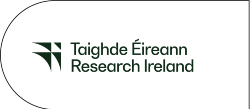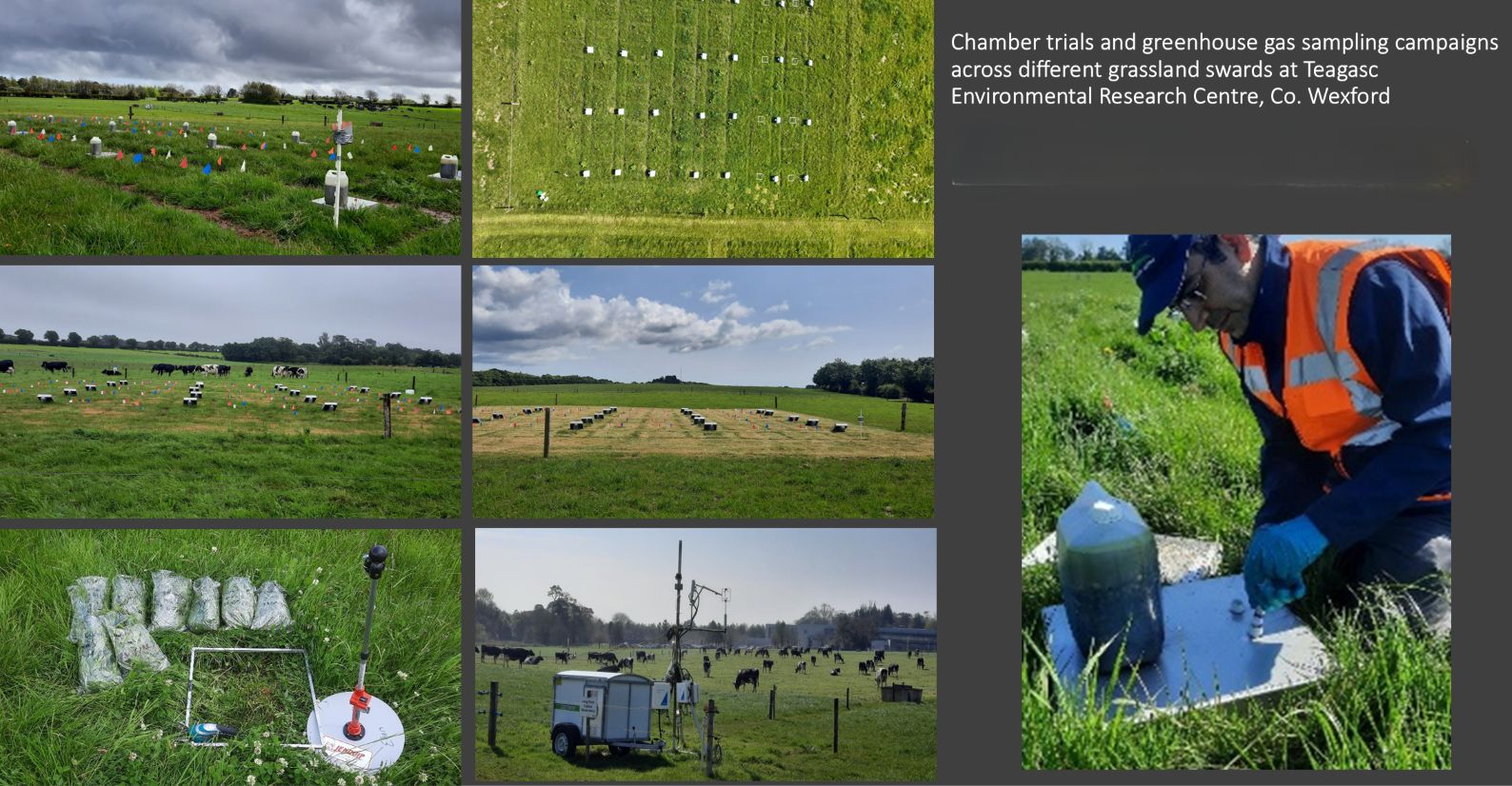
iCRAG Announces 2025 Award Winners at Annual Summit
Friday, 4 July, 2025
Share
The annual iCRAG Summit once again provided the opportunity to celebrate the achievements of researchers, collaborators, and staff across the Centre. The 2025 iCRAG Awards recognised exceptional contributions in research, mentoring, public engagement, impact, industry collaboration, and equity, diversity and inclusion.
The award winners are:
This year’s Research Paper of the Year was awarded to Prof. Dave Chew for a publication that offers fresh insight into the evolution of Antarctica’s ancient landscape. The study provides evidence that West Antarctica was once shaped by large river systems and demonstrates the power of modern analytical techniques in sedimentary provenance. “I'm delighted to accept this award on behalf of everyone who contributed to this study,” he said. “Our paper provides new insights into the topography of Antarctica just before the major ice sheet buildup 35 million years ago — including evidence that West Antarctica was once drained by large river systems. It also showcases the power of modern analytical techniques in sedimentary provenance and the value of broad collaboration across numerous institutions.”
The EDI Award was presented to Marcos Amores in recognition of his leadership and commitment to fostering an inclusive and supportive research environment. Reflecting on the award, he said: “I'm grateful to be part of a scientific community that upholds dignity, fairness, and a genuine sense of belonging. As someone who arrived from abroad, the warmth and welcome I received left a lasting impact. It inspired me to give back and to help open doors for others still finding their way.”
Rioko Moscardini received the Education and Public Engagement Award for her outstanding commitment to outreach and science communication. “Thank you to the judges who have awarded me the iCRAG EPE award – I am truly honoured,” she said. “Sharing knowledge and sparking curiosity in others is critical to science communication and engagement. I'm very grateful to be part of a team that values education and outreach, and look forward to continuing to connect with different demographics in our community.”
Victoria Susin was awarded the Future Leader Award for a postgraduate researcher. Her creativity, leadership and positive influence within iCRAG were widely praised. “I'm so grateful to iCRAG for this award,” she said. “It's inspiring to be part of a community of not only incredible professionals but genuinely great people. I've learned and grown so much here, and this recognition is really a reflection of the support I've received throughout my PhD journey!”
The Future Leader Award for a postdoctoral researcher went to Dr Claire Geel. A valued contributor to research projects and interdisciplinary collaboration, she reflected: “My time as a postdoctoral researcher with iCRAG has been incredibly rewarding. I have had the opportunity to work on many exciting projects that helped me to grow, learn and innovate. As the future of geoscience constantly evolves with the advancement of technologies and increasing resource demands, iCRAG continues to lead the way.”
Dr Patrick Orr was recognised for his outstanding support of colleagues with the Mentoring Award. “I’m hugely honoured – and flattered – to receive the iCRAG mentoring award,” he said. “I’m also really pleased to be part of a research centre that values and champions activities such as mentoring and greater equality, diversity and inclusion to ensure the whole is greater than the sum of the parts.”
The Industry and Entrepreneurship Award was presented to Dr Simon Jones for his strong leadership in building impactful collaborations between academia and industry. “I'm very pleased with this award,” he said. “Great things happen when industry and academia collaborate, so I look forward to seeing our collaborations come to fruition over the next few years.”
The UCD Sustainable Energy Group received the iCRAG Impact Award for their work advancing geological decarbonisation of energy systems. Their research spans geothermal resource modelling and geological storage, and has informed both national and international energy policy discussions. “The Sustainable Geoenergy team at the UCD School of Earth Sciences focuses on geological decarbonisation of energy systems research,” the group noted. “This includes recent and ongoing projects in geothermal resource modelling, such as on the UCD campus (e.g. GeoNORM), nationally (National Geothermal Database (NGD)), internationally (e.g. Northern Ireland; Scotland - Galleries to Calories), and demonstrator projects (e.g. Geothermal Energy Momentum on the Island of Ireland, GEMINI). Research is also focused on geological storage potential in offshore basins (GeoStoreIE). The team has been successful in developing novel methodologies, addressing and contributing to policy goals, building national and international collaborations, leveraging national and international funding sources, and developing internationally recognised expertise.” Members of the team include Kara English, John Walsh, Koen Torremans, Tom Manzocchi, Conrad Childs, Frank McDermott, Peter Haughton, Joe English, Pablo Rodriguez-Salgado, Vincent Roche, Gustavo Martins, Rioko Moscardini, Simon Vokes and Cormac O'Kelly.
Dr Morad Mirzaei was the recipient of the 2025 award for Image of the Year, in recognition of a series of descriptive and insightful photographs taken during his field research.

“I am sincerely grateful to iCRAG for awarding me the Research Image of the Year. It is an honour to have my work recognised among such an inspiring community of researchers. My research explores how grass-based agriculture impacts carbon and greenhouse gas emissions, using advanced techniques such as Eddy Covariance flux towers, remote sensing, and chamber-based measurements. The project aims to improve emission estimates and support climate-smart practices that benefit both the environment and grassland productivity. This research is supervised by Professor Matthew Saunders at Trinity College Dublin and conducted in collaboration with Teagasc’s Environment, Soils and Land Use Department, with contributions from Dr Rachael Murphy and Dr Karl Richards.”
These awards highlight the diverse and meaningful contributions of iCRAG researchers to science and society. Congratulations to all of this year’s winners!









